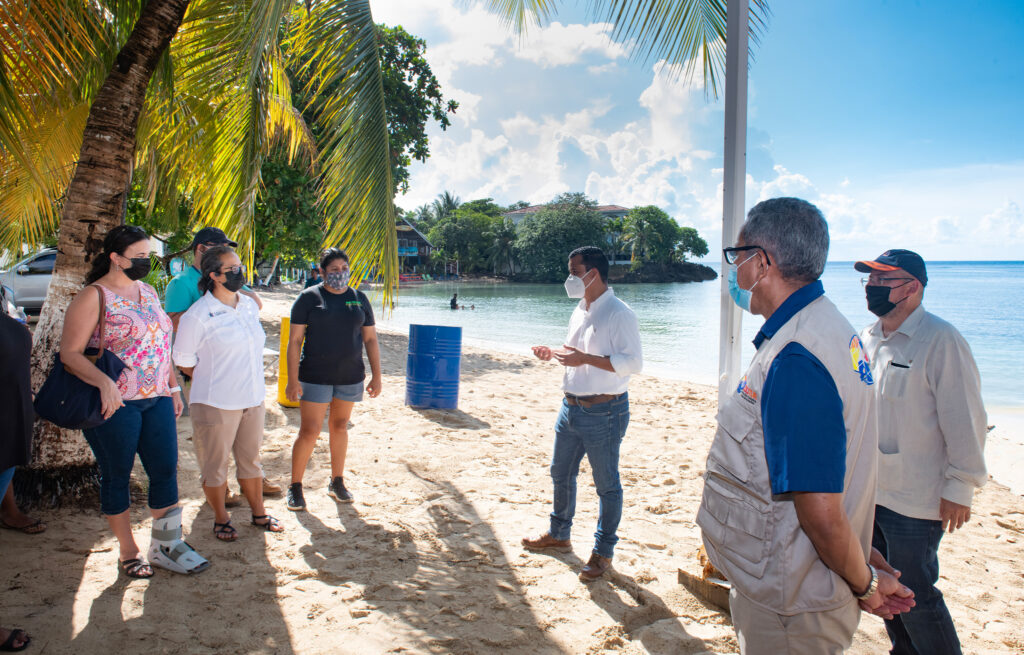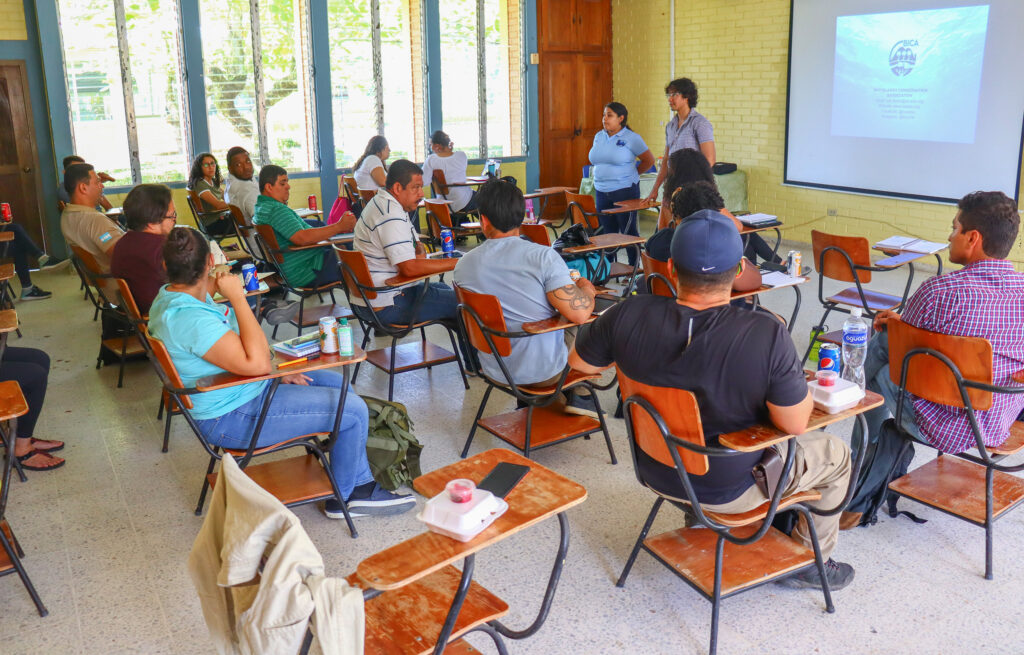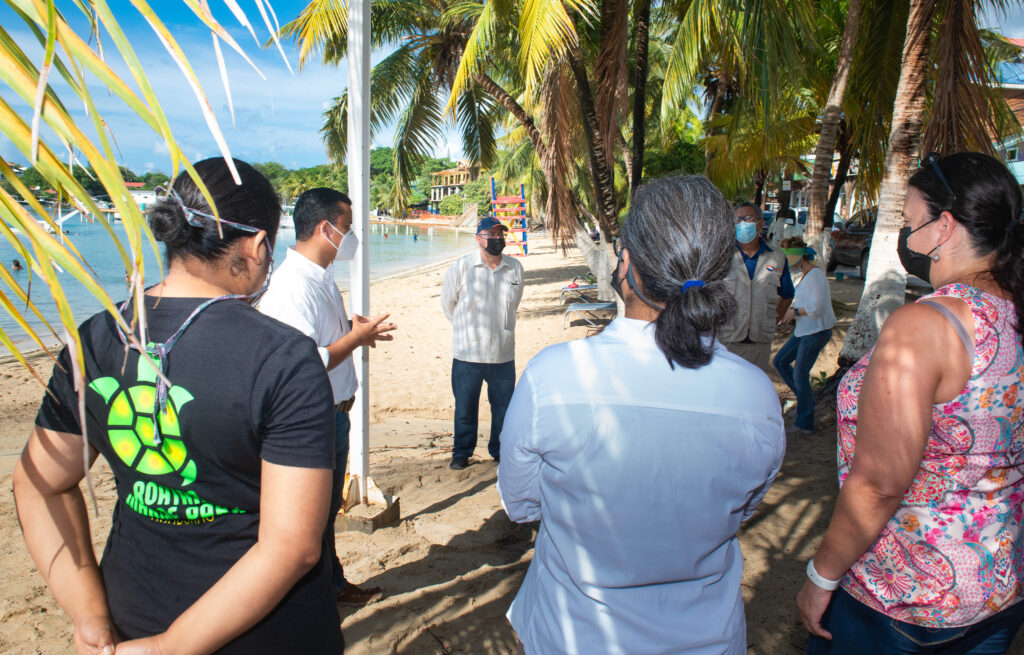Building Support and Sustainability
Inclusive community and partnership collaboration is a cornerstone of successful wastewater treatment projects, especially in underfunded and underdeveloped coastal communities. Engaging a broad range of partners ensures that projects receive the necessary support, participation, and funding to protect coral reefs and enhance local livelihoods. Here are the key components of partnership and community engagement:
Inclusive Planning and Decision-Making
Effective wastewater treatment projects begin with inclusive planning and decision-making processes that involve all relevant partners. This includes:
- Community Members: Engaging local residents, including homeowners, fishermen, business owners, and community leaders, ensures that their needs, concerns, and ideas are integrated into project planning.
- Government Agencies: Collaboration with local, regional, and national government bodies helps align the project with regulatory requirements and leverage public resources and support.
- NGOs and Environmental Groups: Partnering with non-governmental organizations and environmental advocacy groups brings additional expertise, resources, and credibility to the project.
- Academic and Research Institutions: Involvement of universities and research centers can provide valuable data, technical support, and innovative solutions.

Education and Awareness Campaigns
Building community support requires comprehensive education and awareness campaigns to inform partners about the importance of wastewater treatment and its impact on coral reefs. Key actions include:
- Public Workshops and Meetings: Organizing workshops, town hall meetings, and public forums to discuss the project, answer questions, and gather feedback.
- Educational Materials: Distributing brochures, posters, and online content that explain the benefits of wastewater treatment and the role of community members in ensuring its success.
- School Programs: Implementing educational programs in local schools to teach students about marine conservation and the importance of clean water.

Community-Based Financing and Participation
Sustainable financing is greatly enhanced through community-based models that ensure local partners are invested in the project’s success. This approach includes:
- User Fees and Service Charges: Implementing a system where community members pay reasonable fees for wastewater services. This model covers up to 85% of operational costs, ensuring financial sustainability.
- Homeowner Participation: Encouraging each household to connect to the wastewater system and contribute to its maintenance, fostering a sense of ownership and responsibility.
- Microfinance and Payment Plans: Offering microfinance options or flexible payment plans to help low-income households afford connection fees and ongoing service charges.
Partnership Roles and Responsibilities
Clearly defining the roles and responsibilities of various partners ensures efficient project implementation and operation. This includes:
- Local Governments: Overseeing project management, regulatory compliance, and public communication efforts.
- Community Organizations: Facilitating community engagement, education, and mobilization activities.
- Private Sector Partners: Providing technical expertise, investment, and operational support.
- Residents: Participating in monitoring and maintenance activities, paying service fees, and promoting best practices within the community.
Monitoring and Feedback Mechanisms
Continuous engagement and feedback mechanisms are essential to maintain community support and ensure project effectiveness. Key strategies include:
- Regular Reporting: Providing transparent and regular updates on project progress, water quality data, and financial status to everyone involved.
- Community Monitoring Programs: Involving community members in water quality monitoring and reporting, fostering a hands-on approach to environmental stewardship.
- Feedback Channels: Establishing clear channels for community members to voice concerns, suggest improvements, and provide feedback on the project’s operations.
Building Long-Term Support and Trust
Sustained community engagement builds long-term support and trust, which are crucial for the ongoing success of wastewater treatment projects. Key actions include:
- Celebrating Milestones: Publicly celebrating project milestones and successes to reinforce the community’s role in these achievements.
- Responsive Management: Demonstrating responsiveness to community feedback and making necessary adjustments to project operations and policies.
- Capacity Building: Continuously building the capacity of local partners through training, workshops, and technical assistance to ensure the community can manage and sustain the project independently over time.

Ensuring Comprehensive Support and Sustainability
By integrating inclusive community and partnership collaboration into every stage of wastewater treatment projects, we can achieve comprehensive support and financial sustainability. Engaging all types of community members—from those living near the water to those involved in on-the-ground activities—ensures that the project receives broad-based backing and participation.
This is vital for the success and sustainability of wastewater treatment facilities in coastal communities. Through inclusive planning, education, community-based financing, and continuous engagement, we can protect coral reefs and improve the quality of life for local populations.